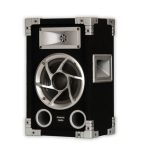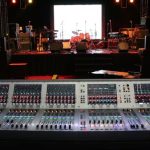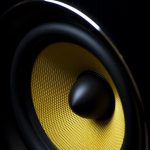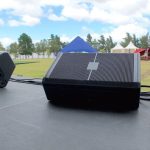Distortion is the last thing that anyone wants to hear from their speakers. It destroys the entire audio experience, be it when listening to music at home, listening to your favorite tracks in your car, or setting up for a live performance. Audio distortion usually occurs when a speaker is fed with a sound signal that is stronger than what it can handle. It can also result from damaged speaker components, especially a torn cone or coil. Read on for more details on how you can prevent audio distortion.
Use the right microphone

In most cases, distortion occurs when the source of sound is overloaded. For example, microphones can lead to distorted audio whenever they’re overloaded with sound. When setting up equipment for a live performance, it’s not just about setting up mics. You should use the right mic for the task ahead. You need to set the mic the right way to ensure it captures audio without any problems. Avoid distortion by ensuring there’s enough gap between the mic and the source of audio. Also, use the right type of mic to prevent distortion.
For instance, if you place a condenser type of microphone between the kick drum, you’ll end up getting distortion. You would rather use a dynamic type of mic in this case. When using condensers, you should keep them at a distance from the mic to prevent any audio distortion.
Regulate the volume of the source
Distortion can also result from an audio source such as a computer that is powered under a higher volume than what its hardware can safely handle. For instance, third-party software may have higher volume levels than the default volume. Higher volume in third-party software may drive the computer hardware beyond its capability. The result will be distorted sound. You can prevent this by ensuring that you don’t exceed the third-party volume beyond the computer’s default volume level.
Every speaker is manufactured to operate under a specific volume level. Any time the volume level is exceeded, there will be distortion. If the volume is exceeded for a longer period, the speaker may blow up. To prevent audio distortion, you’ll need to know the maximum level of volume that a speaker supports.
Maintain the ideal headroom
It’s also possible to prevent sound distortion by ensuring the headroom is within the ideal limits. Headroom refers to the difference between the average audio that a system can produce and the loudest sound that it may safely handle. Always watch this difference and keep your speaker within the limits. For instance, if the average volume is 50 dB and the speakers can handle up to 70 dB, then it means you have a headroom of 20 dB. Avoid exceeding the headroom to prevent audio.
Using a crossover
Another ideal way of preventing distortion is to use a crossover in your sound setup. A crossover comes with a high and low pass filter. The role of a crossover is to ensure that a certain frequency range is sent to the ideal speaker for that frequency range. For instance, if tweeters and midrange speakers receive low frequencies, they’ll end up distorting. Similarly, if a subwoofer receives higher frequencies, it’ll also distort. Using a crossover prevents distortion by ensuring that tweeters only receive high frequencies and subwoofers receive low frequencies. Mid-range speakers, on the other hand, receive midrange frequencies.
Regulating the bass controls
In case your subwoofer is distorting at high volume or bass, then you need to adjust bass and volume controls appropriately to eliminate the problem. Extreme levels of bass can distort a subwoofer when feeding it with excessive bass levels beyond what it can handle. You can prevent distortion by regulating the bass controls according to what your subwoofer can handle and enjoy clean, smooth bass. Be keen to regulate the gain and bass controls further, especially when listening to bass-boosted tracks.
Invest in high-quality soundtracks
Some soundtracks are usually of low quality, especially extremely compressed files. Such tracks are usually distorted. You can prevent such distortion by using original soundtracks rather than compressed ones.
Take advantage of an equalizer
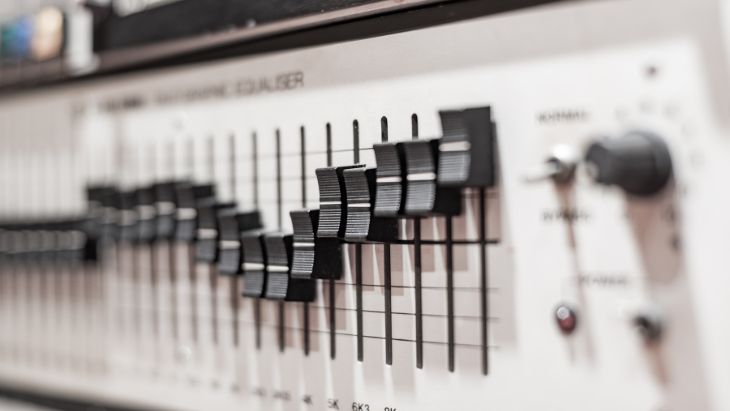
If you want to enjoy clean sound that is free from distortion, then you should install an equalizer in your sound setup. It works by reducing or boosting frequency levels to ensure that the audio signal stays within the range you want. It synchronizes the signal and uses filters to allow for frequency control within the levels you want. This way, distortion can be prevented since you can control the frequency at lower and higher volumes.
Take advantage of an amplifier
Amplifiers usually work by boosting a signal to increase its power. If a speaker is being fed by a weaker signal, it may sound distorted especially when you try to increase the volume. You can prevent this from happening by adding an amplifier to amplify the signal to an appropriate level such that the speaker will be fed with clean sound.
Preventing distortion from channel clipping
Clipping from an audio channel indicates that the level at that channel is being exceeded. While occasional clipping wouldn’t be a major problem, when it’s consistent, then it may lead to audio distortion. Ensure gain and input levels are set properly to prevent clipping and distortion in a certain channel.
Preventing sound distortion from faulty devices
Distortion also occurs from faulty devices. You need to ensure that all the equipment you’re connecting in your audio setup is functioning properly and none of them is faulty. Repair or replace any faulty device. Doing so will prevent distortion.
Use high-quality speakers
If you’re using low-quality speakers in your audio setup, then you’ll occasionally experience poor sound, especially when the volume level is high. Poor-quality speakers cannot reproduce sound in a way that delivers clean sound. They can clip, distort, and even tear. Avoid such problems by investing in high-quality speakers. Also, ensure other equipment in your setup are of high quality, including the audio receiver or amplifier, crossovers, microphones, and music instruments.
By preventing audio distortion, you’ll enjoy clean, high-quality sound from your music system, be it in your car or home, or setting up for a live performance. Remember that when you have faulty equipment, your only solution would be getting them repaired or replaced to eliminate distortion.
Michael Evanchuk is a San Francisco-based sound engineer with 20 years’ experience installing, troubleshooting, and repairing commercial, automotive, and household sound equipment. Evanchuk owns an auto stereo center, where he offers highly competitive car audio installation and repair services. He has written dozens of articles on different sound engineering topics, all of which have been published in leading journals, blogs, and websites.


